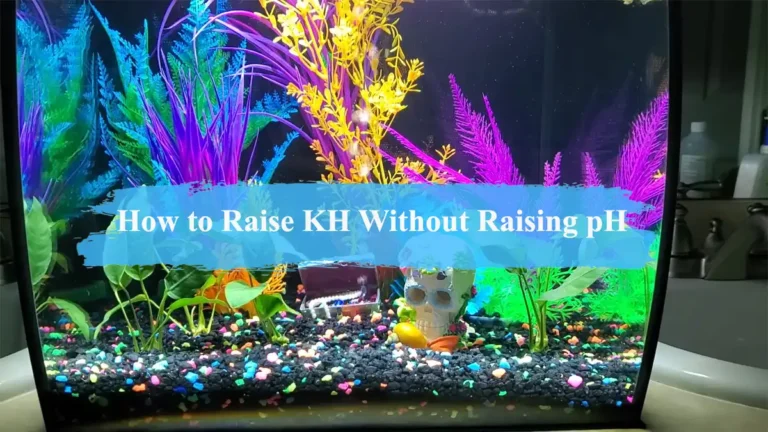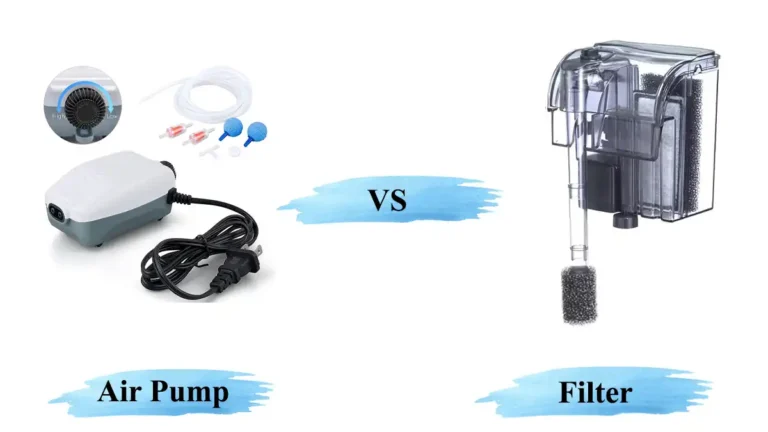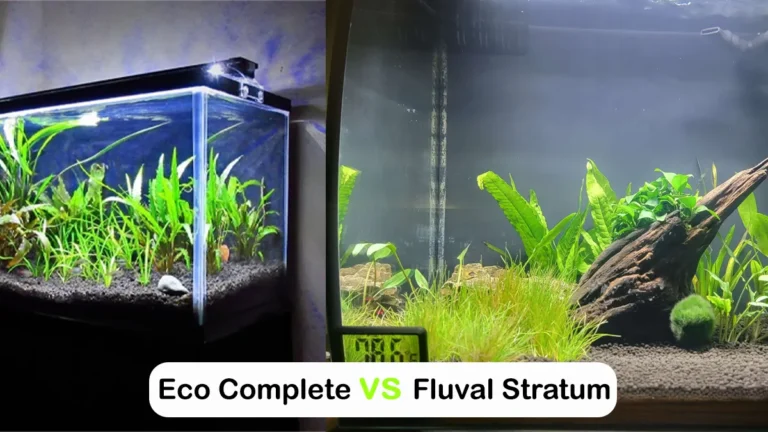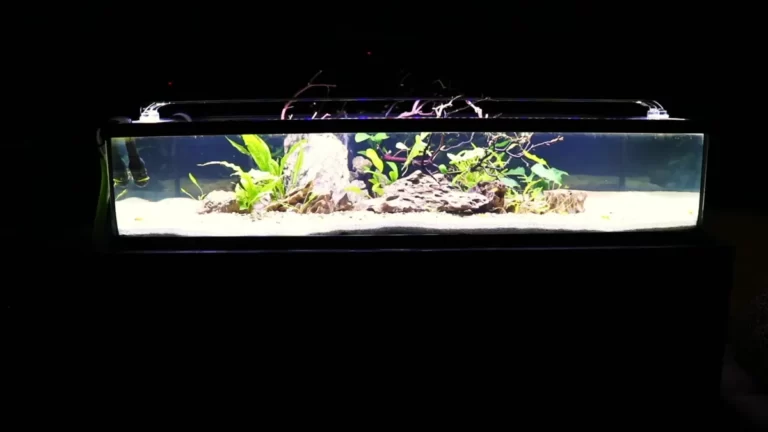Spring or Distilled Water for Fish Tank– What’s the Differences
Before we dive into the spring versus distilled water debate, let’s first acknowledge the importance of water quality in a fish tank. Just like air is vital for us, clean and healthy water is essential for fish. As responsible fish owners, we want nothing but the best for our aquatic friends.
Now, onto the main question – spring or distilled water for your fish tank? This article aims to answer that question comprehensively. Whether you’re a seasoned fish enthusiast or a newbie, I’ve got you covered! By the end of this guide, you’ll be equipped with the knowledge to make an educated choice for your finned companions.
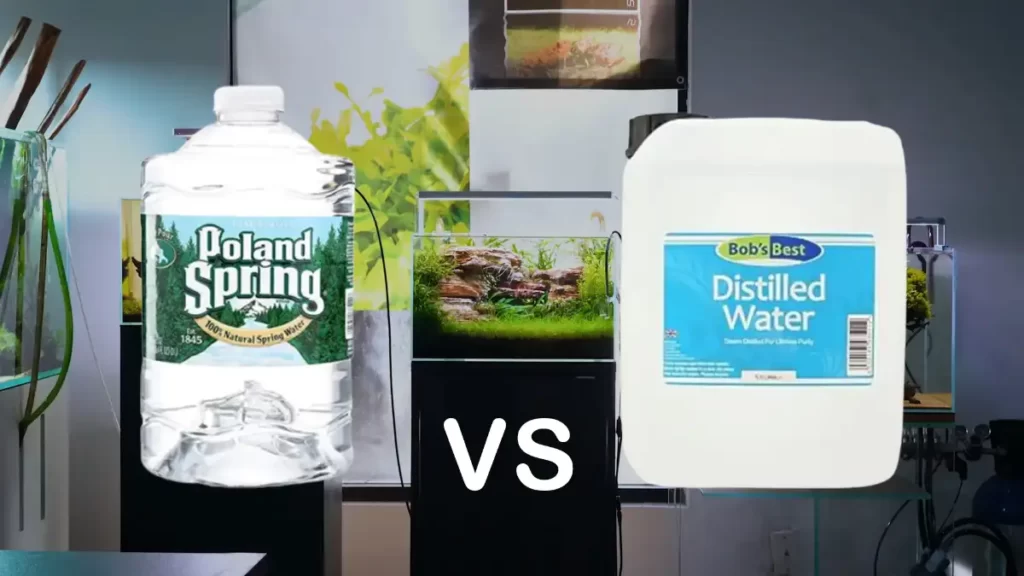
Spring or Distilled Water for Fish Tank: The Main Question Answered
Let’s start by understanding the fundamental characteristics of spring water and distilled water:
Spring Water
Spring water is sourced from natural springs or is bottled directly from these sources. It retains varying levels of minerals, such as calcium and magnesium, which can be beneficial for certain fish species. The mineral content in spring water might vary depending on the specific spring and geological conditions. However, this variability can also pose challenges in maintaining consistent water quality in the fish tank.
Distilled Water
Distilled water is produced through a purification process that removes most impurities and minerals, leaving it with a high level of purity. The lack of minerals in distilled water makes it a clean and neutral option for fish tanks.
However, this absence of minerals can also be a potential drawback, as some fish species might require specific minerals for their overall health and well-being. If using distilled water, it is essential to monitor and maintain proper pH levels and introduce necessary supplements if specific fish species demand it.
Related Post: Can You Use Distilled Water for Betta Fish?
Pros and Cons of Using Spring Water in a Fish Tank
Pros:
- Spring water’s natural mineral content can benefit certain fish species and promote their health.
- Some fish species may find the mineral composition of spring water more compatible with their natural habitat.
Cons:
- The variable mineral content in spring water can make it challenging to control water quality and maintain consistent conditions in the fish tank.
- Depending on the source, spring water might contain contaminants that could be harmful to fish.
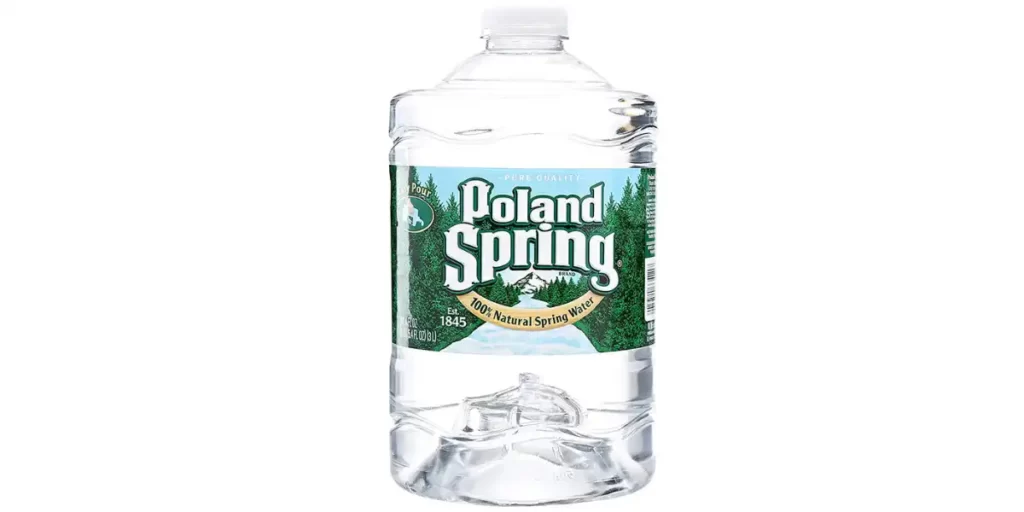
Pros and Cons of Using Distilled Water in a Fish Tank
Pros:
- Distilled water is purified, ensuring a clean and contaminant-free environment for fish.
- The absence of minerals reduces the risk of mineral imbalances and supports a neutral pH level in the fish tank.
Cons:
- The lack of essential minerals might not suit all fish species, potentially affecting their health and development.
- Without proper supplementation, the neutral nature of distilled water might lead to imbalanced pH levels, impacting fish health.
Considering these points, the best choice depends on your specific fish species and tank setup. Let’s move on to more detailed insights:

Spring Water for Fish Tanks
There’s a difference between natural springs and bottled spring water. Knowing the source can provide valuable information about the water’s mineral composition.
Testing the mineral content is vital to ensure it aligns with your fish’s requirements. Some species prefer specific mineral levels for optimal health.
Before adding spring water to your tank, consider filtration and purification techniques to eliminate potential contaminants.
Ensuring the water’s pH is within the ideal range is essential for your fish’s well-being.
Learn about the compatibility of different fish species with spring water. Avoid common mistakes and consider enhancing spring water with supplements if necessary.
Distilled Water for Fish Tanks
The Distillation Process Explained
Distilled water is produced through a distillation process involving heating water to create steam, which is then condensed back into liquid form. This process effectively removes most impurities, minerals, and contaminants from the water, resulting in a high level of purity.
Analyzing the Purity of Distilled Water
Distilled water is considered one of the purest forms of water available. It is free from impurities, minerals, and contaminants that could affect fish health. The absence of such substances provides a clean and neutral environment, beneficial for sensitive fish species and those with specific water requirements.
Guidelines for Using Distilled Water in Your Fish Tank
Mixing Distilled Water with Other Water Sources (if applicable): Consider blending distilled water with tap water or other types to achieve desired water chemistry for specific fish species.
Introducing Distilled Water Gradually: Transition to distilled water gradually to minimize stress and ensure a smooth adaptation process for the fish.
Monitoring and Adjusting Water Chemistry: Regularly monitor pH levels and mineral content. Adjust water chemistry with appropriate supplements as needed for your fish species’ well-being.
Related Post: Do You Have to Condition Spring Water for Betta Fish?
What Are the Best Alternatives to Spring and Distilled Water?
If you’re exploring water options beyond spring and distilled water for your fish tank, several alternatives can be considered:
- Tap Water: In many cases, tap water can be a viable option for fish tanks. However, it is essential to use a water conditioner to remove chlorine and other harmful substances before adding it to the tank.
- Reverse Osmosis (RO) Water: RO water is a purified water type created through a filtration process that removes most impurities. Like distilled water, it has minimal mineral content, making it suitable for certain sensitive fish species.
- Dechlorinated Water: If your tap water quality is suitable for fish but contains chlorine, using a dechlorinator can remove chlorine and make it safe for your fish tank.
- Rainwater: Harvesting and using rainwater can be an eco-friendly option. However, it’s crucial to ensure the rainwater is free from pollutants and contaminants.
When considering alternatives, always research your fish species’ specific requirements and perform water tests to ensure the chosen water type meets their needs. Providing a well-balanced and suitable aquatic environment is essential for the health and happiness of your fish.
Conclusion
Water quality is paramount in fish care, and choosing the right type of water for your fish tank is crucial. After exploring the characteristics, pros, and cons of both spring and distilled water, I recommend considering your fish species and tank setup before making a decision. Remember, a healthy fish tank leads to happy fish!
Related Post: How to Raise KH Without Raising pH: A Comprehensive Guide


